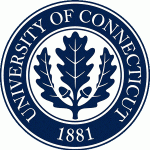 On April 14, the department convened for an awards banquet that recognized the best among undergraduate and graduate students, as well as faculty. This year’s award recipients are:
On April 14, the department convened for an awards banquet that recognized the best among undergraduate and graduate students, as well as faculty. This year’s award recipients are:
Omicron Delta Epsilon inductees:
Odrine Belot
Isaac Blyakher
Justin Chan
Sadie Colcord
Cathleen Cormier
Raychel Decker
Geoffrey Donovan
Kelsey Duran
Peter Jiang
Kayla Joyce
Steven Joyce
Patrick Meucci
Kimberley Pepper
Kristina Petruff
Corrin Powell
Fariha Rashid
Matthew Regan
John Shea
Ryan Sherman
Chifan Shi
Josh Spadaro
Leo Villari
Makayla Wall
Undergraduate Awards
Louis D. Traurig Scholarship
Patrick Adams
Brendan Costello
Kayla Joyce
Kimberly Roland
Paul N. Taylor Memorial Prize
Katherine Harrington
Rockwood Q. P. Chin Scholarship
Chris Cunningham
William Johnston
Blazej Pulawski
Claudia Rodriguez
Ross Mayer Scholarship
Kimberley Pepper
Economics Department General Scholarship
Caitlin Delaney
Matthew DeLeon
Julia & Harold Fenton and Yolanda & Augustine Sineti Scholarship
Tasneem Ahmed
Kathryn A. Cassidy Economics Scholarship
Andrew Carroll
Fariha Rashid
Joseph Roessler
Charles Triano Scholarship
Di Wu
Albert E. Waugh Scholarship
Ehi Osagie
Hao Ying
Economics Research Award Program
Professor Jorge Aguero & Juan Campanario
Graduate Awards
W. Harrison Carter Award
Tao Song
Abraham Ribicoff Graduate Fellowship
Aaron Cooke
Mike Dinardi
Economics Department Graduate Scholarship
Samantha Minieri
Timothy A. and Beverly C. Holt Economics Fellowship
Wensu Li
Xizi Li
Tian Lou
Shilpa Sethia
Tao Song
Best 3rd-year Paper Award
Andrew Ju
Sungoh Kwon
Faculty Awards
Grillo Family Research Award
David Simon
Grillo Family Teaching Award
Nishith Prakash
Employee Appreciation Awards
Derek Johnson 10 years
Kenneth Couch 20 years
Susan Randolph 30 years
Francis Ahking 35 years
Congratulations to everyone!
 Graduate student Sungoh Kwon has been invited by Prof. Gautam Rao (Harvard University) as a visiting student in Department of Economics at Harvard University for the fall 2016 semester.
Graduate student Sungoh Kwon has been invited by Prof. Gautam Rao (Harvard University) as a visiting student in Department of Economics at Harvard University for the fall 2016 semester.